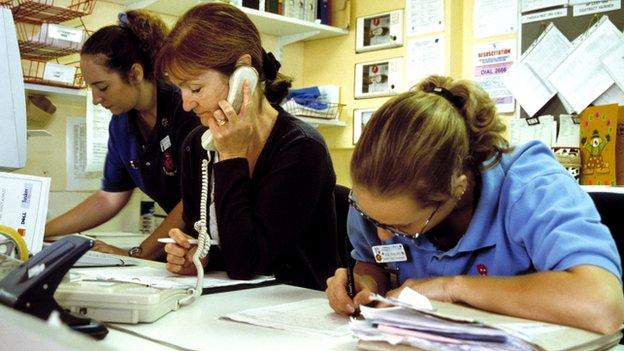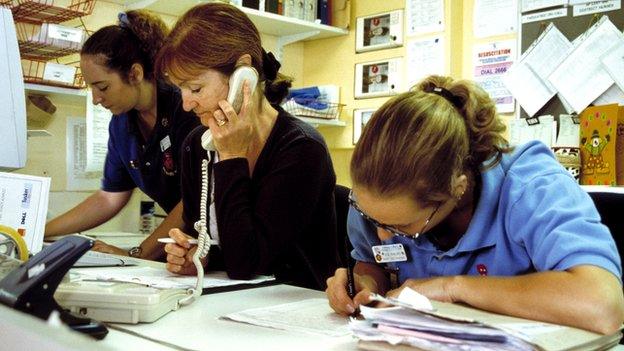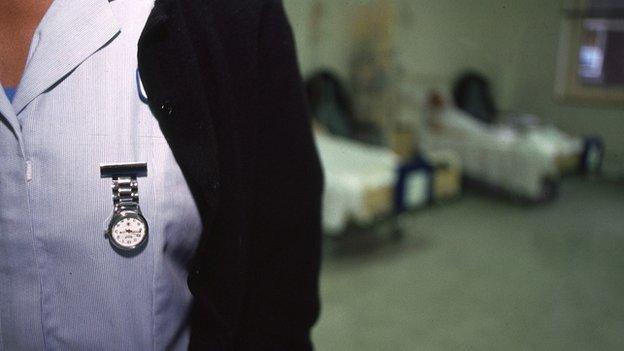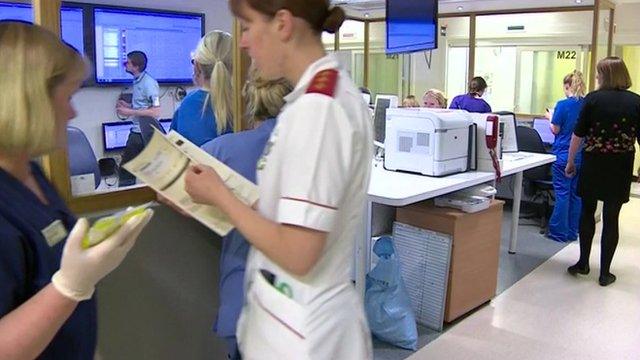NHS England cap on agency payments comes into effect
- Published

Agency staff are costing the NHS too much, says the government
A cap on spending on NHS agency staff comes into force in England on Monday, to save £1bn over the next three years.
By April, NHS trusts will not be able to pay agency staff, such as doctors and nurses, more than 55% more for a shift than a permanent member of staff.
Agency spending is one of the biggest costs to NHS trusts and is putting increasing pressure on the health service's finances.
The health secretary said it would stop agencies "ripping off the NHS".
But agencies complain they are being demonised when the problem lies in a shortage of trained staff.
And some hospitals are likely to struggle to meet the targets they have been set.
The government in England set out plans, external on how agency spending was to be capped in June before setting out the details of how it would work last month.
The cap comes following reports of agencies being paid thousands of pounds to supply nurses and doctors for shifts.
Figures show that NHS trusts in England have overspent by £1.6bn so far this year (2015-2016), an increase on the £930m deficit in June.
'Extortionate rates'
From Monday, there will be a limit on the amount companies can charge per shift for providing all staff, including doctors and non-clinical personnel.
Health Secretary Jeremy Hunt said for too long staffing agencies have been able to "rip off the NHS by charging extortionate hourly rates".
He said this had cost billions of pounds a year and undermined staff working hard to deliver high-quality care.
"The tough new controls on spending that we're putting in place will help the NHS improve continuity of care for patients and invest in the front line - while putting an end to the days of unscrupulous companies charging up to £3,500 a shift for a doctor."
Prof Sir Mike Richards, chief inspector of hospitals, said introducing the cap was the right thing to do.
"I welcome the fact that this is being phased in, allowing staff and trusts time to adjust and minimising any risks to patient safety," he said.
"Close monitoring will allow us to assess the impact on individual trusts."
- Published2 June 2015

- Published31 May 2015

- Published22 May 2015
